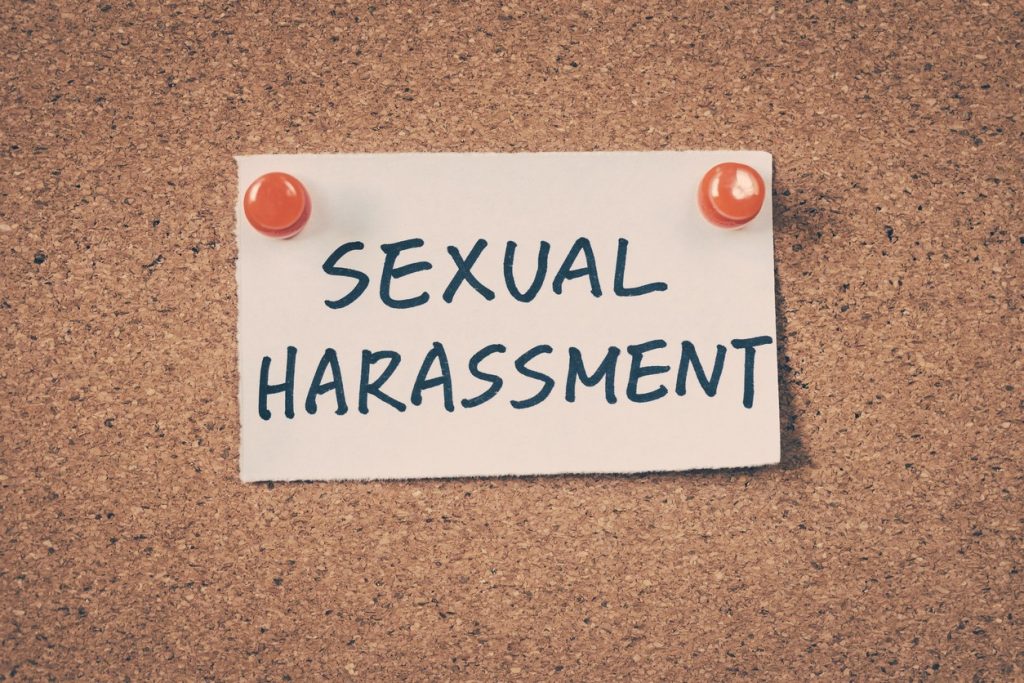In a complaint filed yesterday in federal court, the Attorney General of Washington alleged that an agricultural company allowed extreme unlawful sexual harassment against its female employees. Indeed, the lawsuit claims that “sexual harassment of female farm workers is an occupational hazard….”
According to the Washington Attorney General’s investigation, the sexual harassment violated Title VII of the 1964 Civil Rights Act and included, among other things:
- requiring women to have sex with a supervisor to remain employed (quid pro quo harassment);
- requesting intimate photographs of female workers;
- groping and rubbing against female employees without permission;
The company, according to the complaint, knew or should have known that one of its supervisors had engaged in these types of blatant sexual harassment over many years.
The lawsuit further charges the company, Horning Brothers LLC, with discriminating against women by hiring them into a segregated job position: sorting onions on the packing line.
Finally, the complaint states that the company and its supervisor illegally retaliated against employees who rejected the supervisor’s sexual advances and/or opposed the alleged unlawful harassment and hiring practices.
The complaint seeks the following relief:
- to prevent the company and its supervisor from continuing to sexually harass, discriminate, and retaliate against its employees;
- for the court to declare that the company’s discriminatory practices violate Title VII and the Washington Law Against Discrimination;
- damages to each employee subjected to the discrimination; and
- attorney’s fees and costs
“No woman should be forced to accept sexual harassment as a condition of her employment[,]” said Bob Ferguson, the Attorney General of Washington.
The case illustrates various kinds of sexual harassment/ discrimination
The types of sexual harassment charged in the farm worker complaint, while severe, serve as examples of the types of harassment that female employees across professions may unfortunately encounter.
Quid pro quo discrimination
“Quid pro quo” means “this for that” and is a particularly repulsive form of harassment. It can take many forms, but as alleged in the farm worker complaint, one type is for a supervisor to tell a female employee that the only way she will get (or keep) the job is to have sex with the supervisor.
Quid pro quo harassment can also happen in less stark terms. For example, in the corporate setting a senior manager may dole out plum accounts or assignments, or even promotions, based on whether the female employee agrees to go out to dinner with him, on a date, etc.
 A headline-grabbing example of quid pro quo discrimination is the allegations swirling around Bill O’Reilly at Fox News. Several women claim that their opportunities to work on Mr. O’Reilly’s show dwindled or disappeared after they rejected his sexual advances.
A headline-grabbing example of quid pro quo discrimination is the allegations swirling around Bill O’Reilly at Fox News. Several women claim that their opportunities to work on Mr. O’Reilly’s show dwindled or disappeared after they rejected his sexual advances.
Hostile work environment
To prove a hostile work environment claim, a sexual harassment plaintiff must prove that the underlying acts were severe or pervasive. A single act of severe harassment, such as a sexual assault, is actionable under Title VII of the Civil Rights Act.
To determine whether harassment violates Title VII, courts consider the following factors:
- the frequency of the discriminatory conduct;
- its severity;
- whether it is physically threatening or humiliating, or a mere offensive utterance; and
- whether it unreasonably interferes with an employee’s work performance.
The employer may automatically be liable if a supervisor harasses an employee that causes an adverse action like termination, lost wages, or a suspension.
If a supervisor creates a hostile work environment for an employee, then the employer will escape liability only if it can prove:
- it reasonably tried to prevent and promptly correct the harassing behavior; and
- the employee unreasonably failed to take advantage of any preventive or corrective opportunities offered by the employer
If a non-supervisory employee harasses another employee, then the employer will be liable for the harassment if the employer knew, or should have known, about the hostile work environment and failed to promptly correct it.
SexualHarassmentSurvivalGuideHiring and promotion discrimination
An employer cannot discriminate against applicants or employees because of their gender, race, national origin, or other protected characteristic.
Nor may an employer base hiring decisions on stereotypes about how a person’s gender, race, national origin, or other protected characteristic might impact their ability to do the job at issue.
After an employer hires women, it may not then assign them to specific types of jobs or assignments based on their gender. And the employer certainly cannot segregate employees into one type of job, as the employer in the complaint allegedly did to female employees and sorting onions.
An exception to these prohibitions may exist if the employer can prove that a bona fide occupational qualification (BFOQ) is required for the job.
Once hired, female employees in all types of work settings and, in particular, senior corporate positions, may find they encounter glass ceiling discrimination. Glass ceiling discrimination is a type of promotion discrimination in which well-qualified female employees (and/or racial minorities) are rarely, if ever, selected for the top positions in the company.
Steps to combat sexual harassment and discrimination
If you believe you’ve been harassed or discriminated against because of your gender, what can you do? If you want to preserve your ability to challenge this discrimination in court, you should consider the following options:
- File a written complaint and follow your company’s policy for submitting internal complaints;
- You may also want to file a charge of discrimination with the EEOC. Their website has helpful information on how to file the complaint and, although you cannot file the complaint online, you can file in person, by telephone, or by mail. Depending on where you live, your complaint must be filed within 180 or 300 days of the discriminatory act. If you have any questions about whether the EEOC is the right place to file, use their online assessment center, which will help you decide if the EEOC is the correct agency,
- Talk about your legal options with an experienced employment law attorney. Given time bars that apply to discrimination claims, it is vital to get the right advice as early as possible in your case.
** If you are a federal government employee or a state or local (city, county) government employee, different complaint filing procedures may apply. The EEOC’s website has a handy online assessment tool that provides information on how to file a complaint.
